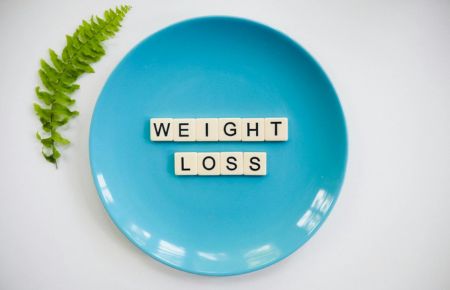
According to the web article, dietary supplement vitamin nutrients are important for maintaining a healthy diet. These supplements provide the body with essential vitamins and minerals that are not found in the food we eat. The article goes on to say that taking a daily supplement can help to prevent deficiencies and keep the body functioning properly.
Would you like to know more about Dietary supplement vitamin nutrients, but are afraid of being bogged down by too much scientific jargon? Well, never fear!
This blog is here to provide you with all the information you need to know about these essential nutrients, without any of the confusing scientific terms. So sit back, relax, and get ready to learn all about Dietary supplements and vitamin nutrients!
The Benefits of Dietary Supplements
If you’re like most people, you probably take some form of dietary supplement every day. Whether it’s a multivitamin, fish oil, or something else, supplements can provide many benefits.
For one, they can help fill in any nutritional gaps you may have in your diet. If you don’t eat a lot of fruits and vegetables, for example, you may want to take a supplement that contains vitamins and minerals. Supplements can also help improve your overall health.
For example, omega-3 fatty acids have been shown to reduce inflammation and improve heart health. So, what are the benefits of taking dietary supplements?
Here are a few: They can help fill in any nutritional gaps you may have in your diet.
They can help improve your overall health. They can help prevent or treat certain health conditions. They can improve your athletic performance. They can help you lose weight. They can help you stay healthy as you age. They can provide you with essential nutrients that you may not get from your diet. They can help you save money on groceries. They can help you save time by not having to cook as much. They can help you live a healthier lifestyle.
The Different Types of Dietary Supplements
There are many different types of dietary supplements available on the market today. vitamins, minerals, herbs, and other substances.
With so many choices, it can be difficult to know which one is right for you. Here is a quick guide to the most popular types of dietary supplements:Vitamins: Vitamins are essential nutrients that your body needs to function properly. They can be found in a variety of foods, but you may not be getting enough from your diet.
Vitamin supplements can help fill in the gaps and ensure that your body gets the nutrients it needs. Minerals: Minerals are another type of nutrient that your body needs for various functions. They can be found in many foods, but you may not be getting enough from your diet.
Mineral supplements can help to fill in the gaps and ensure that your body gets the nutrients it needs. Herbs: Herbs are a type of plant that has been used for medicinal purposes for centuries.
Some herbs can be taken as supplements to help improve your health. Herbal supplements are not regulated by the FDA, so be sure to do your research before taking them. Other substances: There are a variety of other substances that can be found in dietary supplements. These include omega-3 fatty acids, probiotics, and more. Be sure to research any substance you are considering taking to ensure that it is safe and effective.
The Risks of Dietary Supplements
Most people are aware that taking too much of a vitamin or nutrient can be harmful. However, many people are not aware of the risks of dietary supplements.
Dietary supplements are not regulated by the FDA in the same way as food and drugs. This means that they are not required to undergo the same safety testing as other products. There have been many reports of people suffering from health problems after taking dietary supplements.
In some cases, these problems have been so severe that they have required hospitalization. In other cases, people have died after taking dietary supplements.
There are a number of reasons why dietary supplements can be dangerous. First, many supplements contain ingredients that have not been adequately tested for safety. Second, the dosages of vitamins and nutrients in supplements can vary widely.
This can lead to people taking too much of a particular nutrient, which can be dangerous. Third, some supplements interact with other medications or supplements that a person is taking. This can cause serious side effects or even death. Finally, some people are allergic to the ingredients in dietary supplements. If you are considering taking a dietary supplement, it is important to talk to your doctor first. He or she can help you understand the risks and benefits of taking a particular supplement.
How to Choose the Right Dietary Supplement
If you’re like most people, you probably take some sort of dietary supplement every day. But how do you know if you’re taking the right ones?
There are so many different brands and types of supplements available, it can be tough to know which ones are right for you. But with a little research, you can find the perfect supplements to help you reach your health goals. Here are a few tips to help you choose the right dietary supplements:
Know your nutrients. The first step to choosing the right supplements is to know which nutrients you need. Different supplements contain different nutrients, so it’s important to choose ones that contain the nutrients you need.
Consider your health goals.
Another factor to consider when choosing supplements is your health goals. If you’re trying to lose weight, for example, you might want to take a supplement that contains appetite suppressants. Or if you’re trying to increase your energy levels, you might want to take a supplement that contains caffeine. Read the labels.
Once you’ve narrowed down your choices, it’s important to read the labels on the supplements you’re considering. This will help you understand what’s in each supplement and how it might benefit you. Talk to your doctor. Finally, if you’re unsure about which supplements to take, it’s always a good idea to talk to your doctor. They can provide you with guidance and advice based on your individual health needs.
Top Dietary Supplements
Assuming you’re referring to the most popular dietary supplements, here is a list of the top, based on sales:
Multivitamins, Vitamin C, Vitamin D Fish oil, Probiotics, Fiber, Calcium, Coenzyme Q10, and Iron.
Protein powdersMultivitamins are the most popular type of dietary supplement and for good reason. They provide a convenient way to ensure that you’re getting all the nutrients you need, including vitamins, minerals, and antioxidants.
Vitamin C is another popular supplement and for good reason. It’s a powerful antioxidant that can help boost your immune system, and it’s also been shown to help reduce the risk of some chronic diseases.
Vitamin D is another important nutrient that many people are deficient in. It’s essential for bone health, and it’s also been shown to have a number of other health benefits, including reducing the risk of cancer and heart disease.
Fish oil is a good source of omega-3 fatty acids, which are important for heart health and brain function. Probiotics are live bacteria that are good for your gut health, and they’ve been shown to have a number of other health benefits as well.
Fiber is an important nutrient for digestive health, and it can also help reduce the risk of heart disease and some types of cancer. Calcium is another important nutrient for bone health, and it’s also been shown to have a number of other health benefits.
Coenzyme Q10 is a nutrient that’s important for energy production, and it’s also been shown to have some antioxidant and anti-inflammatory benefits.
Iron is an important mineral for blood health, and it’s also essential for pregnant women and young children.
Protein powders are a popular way to get additional protein into your diet, and they can be helpful for people who are trying to build muscle or lose weight.
Conclusion
Dietary supplements provide vitamins and nutrients that can be beneficial to overall health. However, it is important to speak with a healthcare professional before starting any supplement regimen, as some vitamins and nutrients can be harmful in large doses.
Thank You for Visiting our website mhnrc.org. If you liked the article, then share it with others.
Follow us on Facebook


